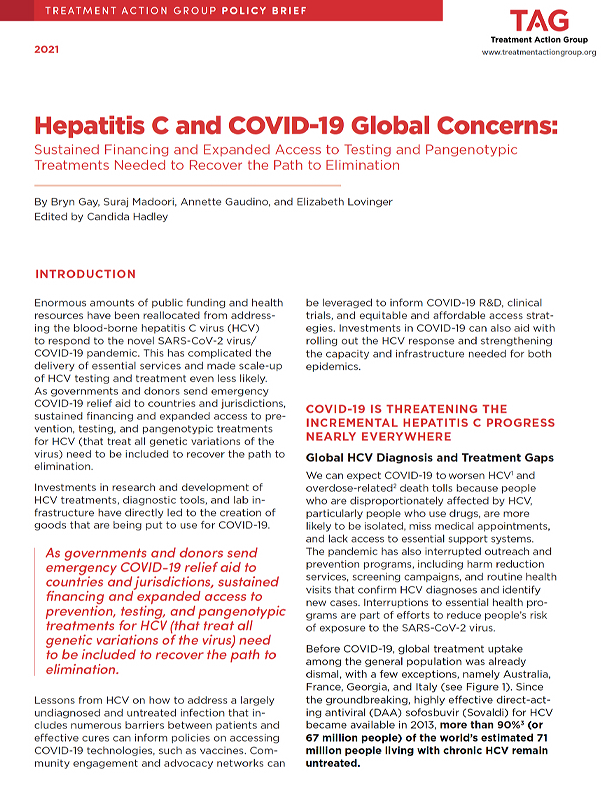The launch of the policy brief, Hepatitis C and COVID-19 Global Concerns: Sustained Financing and Expanded Access to Testing and Pangenotypic Treatments Needed to Recover the Path to Elimination, highlights strategies that leverage the COVID-19 response towards improving access to HCV diagnostics, treatment, and care.
Enormous amounts of public funding and health resources have been reallocated from addressing the blood-borne hepatitis C virus (HCV) to respond to the novel SARS-CoV-2 virus/COVID-19 pandemic. This has complicated the delivery of essential services and made scale-up of HCV testing and treatment even less likely. As governments and donors send emergency COVID-19 relief aid to countries and jurisdictions, sustained financing and expanded access to prevention, testing, and pangenotypic treatments for HCV (that treat all genetic variations of the virus) need to be included to recover the path to elimination.
Investments in research and development of HCV treatments, diagnostic tools, and lab infrastructure have directly led to the creation of goods that are being put to use for COVID-19. Lessons from HCV on how to address a largely undiagnosed and untreated infection that includes numerous barriers between patients and effective cures can, can inform policies on accessing COVID-19 technologies, such as vaccines. Community engagement and advocacy networks can be leveraged to inform COVID-19 R&D, clinical trials, and equitable and affordable access strategies. Investments in COVID-19 can also aid with rolling out the HCV response and strengthening the capacity and infrastructure needed for both epidemics.

